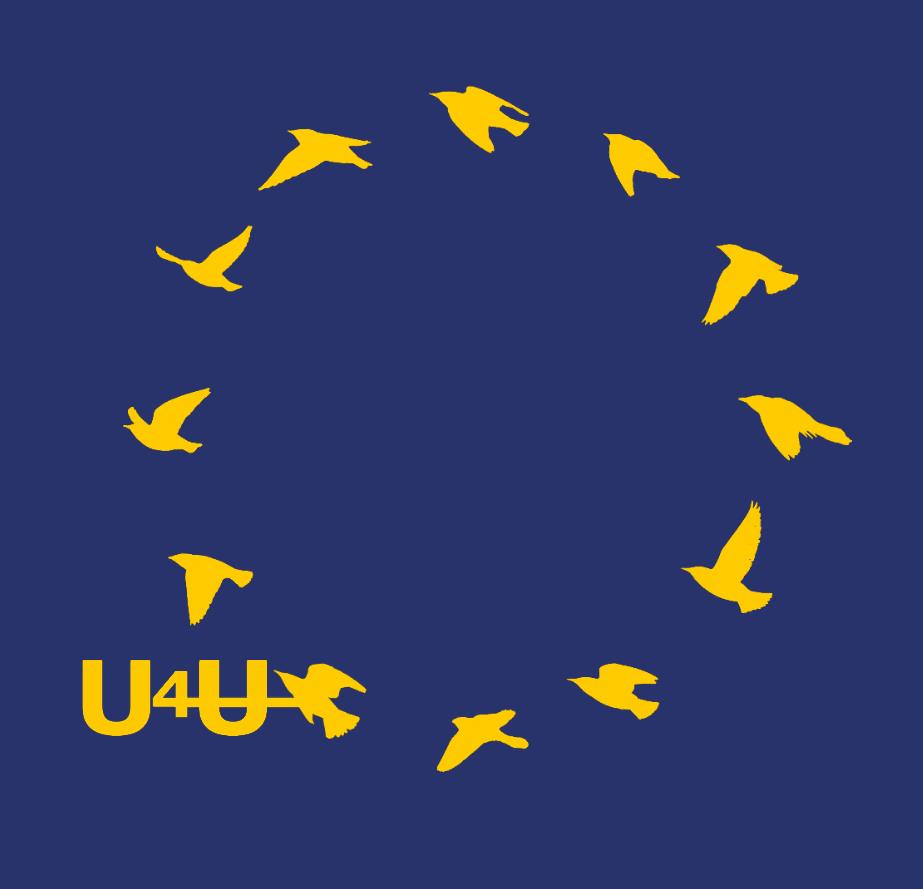Conflict in the Middle East: We must not remain silent
Why we must take a stand?

We, as employees of the European civil service, are concerned about the ongoing conflict in the Middle East and the atrocities that have been taking place there since October 7, 2023. These events cannot leave us indifferent.
Indeed, our profession, our mission, is the construction of Europe. A project, values that embody the overcoming of hatred among the peoples of the European continent, marked by numerous wars, acts of pure barbarism, and a genocide that remains vivid in our collective memory.
The European Union is the result and symbol of an effort to overcome past wars and hatreds by jointly building a democratic space of cooperation and solidarity. This space was founded not on the concealment of the past but on the conscious and self-critical recognition of our history, without obscuring its causes and responsibilities.
This European model serves as our compass and guides us. It is the only one that strongly promotes our values and founding principles to pave the way towards peace and harmony.
This is why we, members of the European civil service, in the name of our history and European identity, believe that our institutions must work together to:
- Secure the immediate release of all hostages;
- Ensure respect for the laws of war, international humanitarian law, and fundamental rights;
- Facilitate the urgent delivery of humanitarian aid to the civilians of Gaza;
- Achieve an immediate and permanent ceasefire, adhered to by all parties, as a first step towards negotiating a lasting resolution to the conflict.
We therefore call on the Presidents and leaders of the European Institutions to act accordingly with all their might and the means they deem useful and necessary.
It is essential to find a political solution that can outline a future for the Palestinian people, without which there can be no future, security, or peace for the Israeli people.
It is our responsibility to promote this demand for humanity and hope.
U4U/RS becomes the 3rd representative trade union at the Commission

The cycle of elections to the various European Commission staff committees came to an end with the latest elections to the Brussels Commission staff committee (+13%), following those to the Luxembourg Commission (+7.5%), ISPRA/Seville (+14.5%) and outside the Union, where our partner UDSHU/RS’s list garnered +51%).
It should be noted that U4U/RS presented its own list for the first time in Luxembourg and at the ISPRA/Seville event. During the same period, U4U/RS obtained almost 20% of the votes in the External Action Service and 9% in the European Parliament, not to mention the lists for the executive and regulatory agencies.
Overall, the Regroupement syndical U4U received almost 16% of the votes at the Commission, which is a slight increase and puts us in third place among the representative trade union organisations.
It should be emphasised that this score was obtained amid a significant renewal of our candidates and list leaders, reflecting recognition of the U4U/RS identity among staff. As soon as one cycle ends, another begins: the elections for the Commission’s Local Staff Committee in Luxembourg are scheduled for late 2025. Not to mention the elections to the External Service, the European Parliament, and the agencies. We will come back to these later.
Temporary and contract agents
Message to Commissioner Serafin
The social dialogue concerning Temporary Agents (TAs) led to political consultations with Commissioner Serafin. This dialogue also paved the way for improvements to the careers of Contract Agents (CAs), who can now benefit from another CA contract after their initial one ends, with the possibility of accessing internal competitions for a permanent position. This is an important issue in the U4U programme.

The social dialogue concerning temporary agents (TAs) led to a political consultation with Commissioner Serafin. U4U conveyed the following message to him:
Thank you, Commissioner,
First of all, thank you for your clear in-depth presentation.
I would also like to thank you for holding this social dialogue on an issue of great importance to the European Commission and its staff. This first occasion for dialogue at your level is the result of many fruitful and constructive discussions with your administration and will have many repercussions during your mandate. Hence, the importance of these discussions for the future.
Today we are discussing how best to manage people who are not permanent officials but yet represent more than one third of Commission staff. The need for this kind staff is largely imposed on us by the budgetary authority, which does not allow us to recruit more than 22,000 officials. This number of staff is not sufficient to meet the ever-increasing demands of European integration. This is even more so in the current critical political environment which demands new policies and strategies.
These temporary and contract agents are often working under the threat of seeing their contract come to an end after a few years’ work, even though their tasks are often permanent. The resulting high staff turnover has a severe detrimental effect: loss of talent and competence; diminished work quality; reduced ability of the Commission to carry out its mission. On the other hand, this turnover also produces egregious social effects.
As civil servants, we are obviously in solidarity with the Commission. We have a duty to deliver the services that European society needs. This is the only way we can be socially useful and legitimate.
The use of contract and temporary staff is currently the only way to carry out our tasks at a lower budgetary cost. Their work is essential for the proper functioning of the Commission.
For this reason, this staff also deserve to benefit from career prospects and job mobility, as the Commission has been publicly acknowledging for some time but has not yet acted fully on this.
In the dossier under discussion today, thanks once again to a sustained and productive social dialogue, we have obtained a clear reference to ‘career prospects’ for this staff.
The main area where we feel there is still room for improvement is the revision of the anti-accumulation rule, which currently limits the period of employment of fixed-term staff to 7 years, with the possibility, presented as exceptional, of benefiting from a longer period following application for a derogation.
If we want to offer this non-permanent staff some career prospects and the possibility of joining the civil service on a permanent basis through almost annual internal competitions, we will have to reform the administrative anti-cumulative rule and move the maximum limit to, for example, 9 years.
This reform would allow such staff to take two or three internal competitions but this time without the current limits being placed on the number of qualified candidates who apply for internal competitions as contractual agents (rules in force in point 7 of article 82 of the rules applicable to other agents).
In practice the Commission is currently adopting our recommended policy, but exclusively with the use of derogations. What we are asking is that this practice become a clearly adopted public policy.
This seems to us to be highly desirable for the personnel and would have the added advantage of promoting the social dialogue.
Otherwise, if the methods that derogate from the rules in force are maintained, staff will tend to believe that social dialogue serves no purpose. These risks giving the message that to advance one’s career, it is better to rely on the goodwill of their superiors than on clear and fair rules negotiated with staff representatives.
The consequence would be a continuing loss of confidence in staff representative organisations and the loss, for the Commission, of these intermediary bodies which ensure a permanent dialogue between the administration and its staff. Of course, this will also have an impact on staff commitment and motivation.
The relatively low participation in staff elections is already a worrying sign.
It’s time to reverse this trend by making much-needed changes to the anti-accumulation rule.
Thank you for your attention!
Artificial intelligence (AI) without thought?
Reading guide
Hubert Krivine, “Chat GPT: An Intelligence Without Thought?”, 2025
“ We build science from facts, just as we build a house from stones. However, an accumulation of facts is no more a science than a pile of stones is a house.” Henri Poincaré

In his book ChatGPT: Une intelligence sans pensée?, Hubert Krivine examines the concepts of intelligence and thought in the context of artificial intelligence, focusing particularly on ChatGPT. Right from the introduction, the author poses a provocative question: how can an entity be intelligent without thinking? This serves as the starting point for a thorough exploration of the nuances and complexities of these two concepts, which are often used interchangeably. Krivine makes it clear that he is not an AI expert, which he believes will enable him to offer a fresh and less biased perspective. He announces that the book will contain more questions than answers and will address various themes, such as thought, intelligence, and the societal impact of AI. This humble and open approach encourages readers to actively engage in the discussion and question their own perceptions of intelligence and thought. The book begins by broadening our understanding of intelligence, defining it as the ability to solve problems — a faculty shared by all living beings. It then goes on to propose a clear distinction between intelligence and thought. The latter is described as a shifting, anarchic and non-hierarchical universe that encompasses reasoning, dreams, desires, intuition, curiosity and other non-quantifiable phenomena. The author points out that the concept of thought has several meanings: thoughts linked to memory and forgetting; deep thoughts linked to understanding and reasoning; and thoughts as a melting pot of infinite ideas. This complexity makes thought difficult to define precisely, which is why there is an abundance of literature on artificial intelligence, but very little on what ‘artificial thought’ might entail. Using examples from the animal and plant worlds, Krivine demonstrates that intelligence is not the exclusive preserve of humanity. This perspective challenges traditional conceptions of intelligence, which are often limited to an anthropocentric view. By criticising the creationist concept of ‘intelligent design’, the author encourages us to view intelligence as an emergent phenomenon resulting from evolution and adaptation rather than the product of a supernatural force. He illustrates this with examples of animals and plants solving survival problems, proving that intelligence is a capacity shared by all living things. He also points out that human intelligence is the product of Darwinian development, characterised by sexual reproduction and natural selection, and has produced remarkable results that are difficult to replicate artificially. Artificial intelligence and its limits: ChatGPT and its capabilities.
The author describes ChatGPT as a language model based on GPT architecture, which is a type of predictive model capable of understanding and generating coherent, contextual text. While this technology is impressive, it raises fundamental questions about the nature of thought and intelligence. Krivine acknowledges that ChatGPT recognises structures in textual data, but cautions that this inductive approach appears to preclude any original creation. ChatGPT has been trained on a wide range of text data from the internet, enabling it to understand and generate text in a variety of styles and formats. It can answer questions, participate in conversations, write texts on a multitude of topics, translate languages and much more besides, mimicking human writing and speech. However, the author points out that its ability to generate coherent, contextually relevant text relies on its training to recognise patterns in analysed textual data, limiting its capacity for genuinely original responses. One of the central issues addressed by Krivine is the ‘black box’, whereby the machine’s decision-making process is not explicit. This lack of transparency raises ethical and practical questions about the use of AI. The author emphasises the risks of using ChatGPT without grasping its inner workings, as this can foster an illusion of human interaction. While this illusion is seductive, it can lead to misunderstandings and errors, particularly in areas where precision and reliability are crucial. The professor points out that AI essentially operates in an inductive mode; in other words, it tries to predict something new from something old. This seems to preclude any original creation. He also highlights the ‘black box’ problem, whereby the path taken by the machine to arrive at a result is not explicit. While this opacity can lead to surprisingly accurate and interesting results, it can also lead to errors because the AI is indifferent to the truth of its assertions and adapts them to its interlocutor. Krivine explores the limits of induction, which consists of generalising from particular cases. While useful in everyday life, induction is insufficient for scientific research, which requires explanatory and predictive theories.
To illustrate this idea, the author quotes Einstein: ‘No inductive method can lead to the fundamental concepts of physics.’ Induction is limited by its inability to anticipate rare and unpredictable events that play a crucial role in evolution and science. The author points out that induction is widely used in everyday life because most processes evolve continuously. However, in science, it cannot anticipate rare and unpredictable events. Financial crises, pandemics and natural disasters, for example, are rare events that cannot be predicted simply by extrapolating past data. Krivine explains that AI, and ChatGPT in particular, works mainly by induction. This means it is limited in its ability to innovate and make revolutionary scientific discoveries. He acknowledges that AI can be useful for analysing data and identifying correlations, but it cannot replace the hypothetico-deductive method of formulating and testing hypotheses experimentally. Krivine also highlights that AI and scientific creation require intelligent use of data, emphasising that data alone is insufficient for constructing a scientific theory. He illustrates this idea by quoting Poincaré: ‘Science is built with facts, like a house is built with stones. But an accumulation of facts is no more a science than a pile of stones is a house.”
Although observations and data can generate new ideas and contradict existing theories, they cannot replace theoretical work. The author uses Galileo as an example: he discovered Jupiter’s satellites thanks to his observations, but he also formulated revolutionary theories on the movement of the planets. The author emphasises that observations are specific pieces of data driven by human intention and always linked to context, unlike the use of Big Data, which generally seeks to decontextualise them. Hubert Krivine explores the distinction between discovery and invention. Some discoveries, like those of Galileo or Christopher Columbus, involve revealing a pre-existing reality. Scientific theories, on the other hand, such as the theory of relativity, are inventions that can be superseded by new theories. The author points out that ChatGPT can produce ‘hallucinations’, but it cannot formulate new scientific theories. This demonstrates the limitations of AI in the realm of scientific creation. Krivine cites the theories of evolution and relativity as examples of how our understanding of living organisms and the universe has been revolutionised.
He points out that these theories were formulated using the hypothetico-deductive method, which enables one to propose theories that go beyond existing data and the limits of induction. He discusses the societal and ethical implications of AI in education. The physicist discusses the impact of AI on education, highlighting that ChatGPT can hinder the way humans understand things by offering instant answers and discouraging reflection and learning. He stresses the need to adapt teaching methods to account for ChatGPT’s limitations and encourage critical thinking. He explains that ChatGPT can be used as a kind of typewriter, but it cannot replace the theoretical work of scientists. He notes that AI can be useful for analysing data and identifying correlations, but it cannot formulate new scientific theories, which limits its usefulness in scientific creation. Hubert Krivine discusses the ethical and practical challenges posed by AI, particularly with regard to responsibility, morality, and the distinction between correlation and causation. He highlights that AI exacerbates broader issues that human thought still faces, such as confusing correlation with causation and perpetuating cultural biases. The author also highlights the ethical and practical challenges posed by AI, particularly with regard to dehumanisation and the erosion of the doctor–patient relationship. He uses autonomous cars as an example. Although they are equipped with numerous sensors and navigation systems, they struggle to anticipate unpredictable situations and make ethical decisions in the event of an accident. He points out that autonomous driving on public roads is much more complex than driving on rails, as it requires constant interaction with a dynamic and unpredictable environment. While AI can be used for telemedicine, this could result in the erosion of the essential doctor-patient relationship for diagnosing and treating illnesses. He stresses that medical consultations involve more than just biological data, which can be analysed perfectly by AI; they also involve contact with a real doctor, which contributes to the effectiveness of the examination. In conclusion, this book offers an in-depth and nuanced reflection on the limits and potential of AI, particularly ChatGPT. Hubert Krivine encourages readers to consider the philosophical, ethical, and practical implications of this technology while emphasising the importance of understanding its limitations and challenges. The author concludes by summarising the reflections and analyses presented throughout the book and emphasising the need to consider the political and ethical issues raised by AI. He emphasises that AI can be useful in many areas, but it cannot replace the theoretical work of scientists or human critical thinking. This book encourages readers to consider the new possibilities for the future of AI while remaining mindful of its limitations and challenges.
Artificial intelligence and social dialogue

Source: Social Dialogue Observatory – Fondation Jean Jaurès
1- Why should AI be included in social dialogue?
The integration of artificial intelligence (AI) into the world of work is transforming working methods and redistributing tasks between humans and machines. This transformation is impacting the distribution of skills and raising questions about the role of humans, as well as giving rise to legitimate concerns about employment and working conditions. It is therefore essential for trade unions and staff representation bodies to understand these changes in order to support workers and defend their rights. AI is no longer confined to repetitive or manual tasks; it is now entering the intellectual professions, such as writing, synthesis and analysis, thereby increasing its potential impact on job sustainability and production quality. This upheaval also raises fundamental questions about employees’ mental and physical health, given the risk of work intensification or cognitive overload. Additionally, algorithmic biases relating to gender, age and disability require greater vigilance to prevent discrimination. The issue of sharing productivity gains is also central. AI creates value, but how will this be redistributed between employees and companies? This must not lead to work intensification or job insecurity. Finally, AI raises significant data protection and digital sovereignty issues. It is therefore essential to establish a shared social standard through social dialogue to regulate the integration of AI in the service of social progress and decent work.
2- How should the social dialogue on AI be organised?
Effective social dialogue around artificial intelligence (AI) requires this technology to be brought out of the shadows, enabling all those involved to understand it fully. AI should not be treated as just another subject, since its impact is far-reaching and disrupts the traditional balance of labour relations. To this end, trade unions, employers, and employees must be trained and supported to understand the practical applications of AI in the workplace and discuss them collectively. A framework of trust must be established that enables employees to use AI without fearing blame for every mistake, while clarifying the division of tasks between humans and machines. This approach requires the appropriate management of jobs and career paths (GEPP), which makes it possible to redefine the necessary skills and anticipate the required training. Social dialogue must also consider the lifecycle of AI systems — from design and validation to operation and monitoring — to avoid disorganised integration, which causes tension. Social partners must therefore agree on how to regulate uses (for example, choosing between ‘weak’ AI and an LLM) and define the conditions for deploying tools together, while guaranteeing data security and preventing bias. Finally, social dialogue must ensure that AI is a tool for collective progress and not a cause of casualisation or social fracture.
3- What makes social dialogue successful?
For social dialogue to be successful in addressing the challenges posed by artificial intelligence, it is crucial to establish an environment that fosters informed and balanced negotiations. Above all, this means being transparent about the objectives pursued by companies. Why is AI being integrated into a particular department or business line, and what is the purpose? This clarity is vital in order to allay fears and enable employees and their representatives to understand the practical impact. It is also crucial to allow sufficient time for social dialogue, because the lifecycle of an AI system — from design and data collection to deployment and evaluation — is complex and requires rigorous testing and validation phases. Social partners must be able to discuss the consequences of AI on working conditions, such as organisation, health and working hours, as well as the prevention of bias, the distribution of productivity gains and the protection of personal and professional data. Particular attention must be paid to the environmental impact of AI, given the energy consumption and resources required for its operation. Lastly, the success of this social dialogue depends on training workers and helping them to understand digital technology, so they can play an active role in this technological transition rather than being subjected to it. This is why trade unions and employers’ organisations must demand substantial support in the form of a national training plan and appropriate collective agreements.
4- The EU’s role in setting up AI
For social dialogue to truly keep pace with the artificial intelligence revolution, it is essential to address the issue on a European scale. In light of the rapid deployment of AI, which is often driven by non-European stakeholders, the European Union must invest heavily to keep up with technological developments. This collective effort is crucial for preserving our strategic autonomy and avoiding increased reliance on imported technological solutions. A major European investment plan must therefore support the research, development, and industrialisation of AI solutions that are tailored to our values and needs. At the same time, it must support businesses of all sizes — especially SMEs and very small businesses — which are often less equipped to meet these challenges. This European financial support must be accompanied by strengthened social dialogue, enabling social partners to be involved at every stage of AI integration: from defining needs to making practical arrangements for implementation in companies. Only then will Europe be able to define its own standards in terms of ethics, data protection and environmental impact while remaining competitive on the international stage. Trade union organisations reiterate that ambitious and concerted European coordination is the only way to build a solid framework for AI that serves technological sovereignty and respects workers’ rights while guaranteeing a balance between innovation and social protection.
5- How is the IA different from previous technological revolutions?
This technological revolution, driven by artificial intelligence, differs from previous ones in terms of its scale, speed, and profoundly cross-disciplinary nature. Unlike previous waves of innovation, which typically affected specific industrial sectors, AI is now being integrated in a diffuse and sometimes chaotic manner into all areas of economic and social activity, including those that were previously considered safe from automation, such as intellectual professions. The widespread digitalisation encouraging its meteoric adoption is leaving workers and companies little time to adapt calmly, generating increased risks of disorganisation and tensions over skills and work organisation. Furthermore, AI is an evolving technology, constantly changing and requiring constant monitoring of its impact on productivity, work quality and data security. AI’s ability to learn and improve continuously, sometimes autonomously, also overturns traditional regulatory and responsible benchmarks. Finally, the often informal or clandestine way in which AI is integrated into organisations makes it even more difficult to assess the risks and benefits, so it is essential that social and economic stakeholders are even more vigilant. These features make AI an unprecedented challenge for social dialogue and collective regulation, forcing companies and trade unions to reconsider their governance models and support tools to control its effects and maximise its benefits.
Conclusion
The integration of artificial intelligence into the world of work is ultimately a major turning point that requires us to reconsider the terms and conditions of social dialogue. At the intersection of the industrial and digital revolutions, AI is more than just another technology; it is transforming professions, organisations, and the relationship between employees and employers. This transformation requires a collective, transparent and forward-looking approach that mobilises all stakeholders in social dialogue to address issues such as the redistribution of productivity gains, the prevention of algorithmic biases, data protection, and environmental impact. In this context, social dialogue must be strengthened and broadened not only within companies, but also at the level of professional branches and European bodies. Only a shared vision of AI, co-constructed by employers, employees, trade unions and public authorities, will enable us to lay the foundations for controlled and sustainable technological development. Finally, digital education and continuing training are essential for enabling workers to develop a critical and informed understanding of AI, and for ensuring that this transformation is understood, supported and controlled. AI is a real democratic challenge that goes beyond a technical issue and calls for social dialogue that is both ambitious and pragmatic.
European Council & Interpreters
Outsourcing part of interpretation, at poorer working conditions than now applicable

If you have already attended a meeting with interpretation at the European Institutions, you have probably already taken advantage of the European Community’s Common Interpretation Service, SCIC.
This Commission DG also provides interpretation for the Council as well as for the EESC and CoR, EIB, agencies and some major conferences – against payment. (SCIC is thus one of the few DGs whose budget depends in part on its services outside the European Commission.)
This cooperation has lasted for many years. SCIC is the world’s largest interpreting service and works with a limited and experienced pool of interpreters, staff interpreters and ACIs (Auxiliary Conference Interpreters, commonly known as freelance interpreters).
It provides a high-quality service thanks to good working conditions resulting from a balanced and well-established social dialogue, guaranteeing a service of quality, continuity and confidentiality with a good integration of new colleagues who are supported by the more experienced.
The “client institutions”, first and foremost the Council, the largest client, purchase SCIC services (under the terms of the Service Level Agreement, SLA); they do not consider interpreters to be their staff, even though the latter have been working for them for years.
Despite consistently positive quality surveys, last year the Council launched a call for tender to outsource interpretation for a part of its meetings.
The idea was to outsource about 10% of the Council meetings, in concrete terms: meetings of the President of the Council, the European Council, Coreper I, the Councils of Ministers under Coreper I, the Special Committee on Agriculture and the trialogues. These meetings therefore even include Councils of Ministers – but not the preparatory technical working groups.
Some questions arise:
Why this partial abandonment of a tried and experienced institutional provider who has faithfully given an excellent service for so many years?
Is it only a matter of finance or of working conditions that are too “advantageous” for staff? The call mentions the introduction of new technologies according to customers’ expectations. Bypassing social dialogue?
What’s more, there are some discrepancies.
For the interpreters, at first sight, the conditions do not seem so bad – as long as you disregard tax, pension contributions, health insurance, travel and accommodation conditions, annual income indexation, cancellation conditions and training. And, unlike in the SCIC system, (voluntary) paid overtime is foreseen, which implies that the workload may de facto be too high and that rest must take place on another day of potential work. Clearly, this system could not work for officials.
The most worrying aspect is the creation of working conditions outside any social dialogue, and which do not claim to form a comprehensive framework.
As a result, this creates pressure on working conditions at SCIC.
It is obvious that freelancers have the right to work wherever they choose, but in this context it is also clear that the situation risks dividing colleagues into those who accept this call for tender, and those who see the initiative as an unprecedented manoeuvre by the Council – especially since these new working conditions created outside social dialogue appear just before the renegotiation of the SLA with the Council and the recast of SCIC’s working conditions (“the Agreement”).
Other aspects which are also relevant to the users of the interpretation service (staff of the Institutions, participants of conferences, Member States):
What about quality?
The winner of the tender, a private consortium called “Fluent Planet”, recruits interpreters on the free market for each meeting. Unlike the Institutions, the service provider does not carry out a quality test. Indirectly, he uses the Institutions’ tests by requesting experience with them.
This approach raises questions.
Furthermore, how is an interpreter supposed to interpret a Council of Ministers without any firsthand experience gained in a working group on a corresponding topic?
Indeed, interpretation, the basis of multilingualism, a principle enshrined in the Treaties, only has added value if it is good. Otherwise, it undermines the purpose it should serve.
What about confidentiality?
This outsourcing is surprising, to say the least, given the importance that the Council attaches to security and confidentiality.
As from July 2025, as participants of Council meetings with interpretation, you may therefore not hear the voice of your usual interpreters over your headphones, but that of the new service provider.
It would appear that many Permanent Representations (representing a large group of users, the Member States) were not even aware of the intention to replace the tried and tested regular interpreters.
This is an appeal to you. Be aware, listen carefully and do not hesitate to give feedback where relevant.
SUMMA
Meeting the challenges of a new financial reality

January 2025 marked a watershed moment in the EU institutions’ financial and procurement architecture with the official rollout of SUMMA, a next-generation financial management system. While the initiative was framed as a leap into a modern, integrated, and automated future, its early months have been marred by operational hurdles, implementation oversights, and unanticipated human consequences.
Why Change Was Necessary
The need for reform was unambiguous. SUMMA replaces ABAC, the long-serving platform based on SAP R/3, which will no longer be technically supported after 2027. SAP R/3 dates back to 1992. In 2004, the German supplier released its third generation of ERP systems: SAP ERP Central Component (ECC) 5.0, followed by SAP ECC 6.0 in 2006. Continuing to use these systems is not an option for most organizations, as the end-of-life can lead to serious security and compliance issues.
For the Commission, the decision was a question of continuity and survival.
“We had no choice. It was either transition or risk running an unsupported core system,” explained one senior official. “It was the right decision, but no one said it would be easy.”
Beyond compliance, the transition opens the door to technological benefits such as AI-enhanced workflows, cloud-readiness, and greater cross-compatibility with internal systems such as eGrants and eProcurement. However, as with most digital overhauls, the gap between strategic promise and operational reality has proven substantial.
Implementation Timeline and Pain Points
Despite extensive preparatory work throughout 2024—including technical coordination with DIGIT, Steering Committees, and readiness dashboards—the 1 January 2025 go-live was poorly timed. The rollout collided with year-end financial closures and the absence of budget authority in early January, creating a perfect storm for already overstretched finance teams.
The consequences have been tangible. One particularly illustrative example cited was the overnight closure of a cafeteria due to unpaid invoices. The incident, while seemingly minor, exposed the reputational risks of delayed payments and signalled to external partners that the internal transition was far from under control.
And the Human Cost?
Perhaps more critical than technical glitches is the human toll. Reports of overwork, burnout, and departures from finance units have become increasingly common. As one representative put it:
“We weren’t just learning a new tool—we were firefighting daily.”
The psychological strain has been exacerbated by opaque workflows, documentation that is often fragmented, and the need to toggle between multiple systems to execute what were once routine tasks.
Two Concrete Suggestions
1. Take SUMMA Productivity Losses into Account in Appraisals
U4U raised a concern that struck a chord across services: staff should not be penalised in the 2025 appraisal and promotion cycle for reduced productivity stemming from SUMMA-related disruption.
DG BUDG responded positively, acknowledging the exceptional circumstances. While no formal instruction could be issued to DG HR, managers were encouraged to apply professional discretion. As noted: colleagues working in finance have been making exceptional efforts under extremely difficult circumstances, and U4U will pay particular attention during next year’s appraisal process to ensure that no one is unfairly penalised in their promotion prospects as a result.
2. Survey End-Users Directly to Avoid Filtered Feedback
The second proposal targeted the information pipeline. U4U recommended launching a direct post-rollout survey among end-users to understand what is working and what is not unfiltered by reporting hierarchies.
A telling example: under ABAC, workflows could be accessed directly via ARES links. In SUMMA, this functionality disappeared, adding unnecessary friction to daily operations. Yet this may not be flagged unless heard directly from the users themselves. The more layers a piece of feedback passes through, the greater the risk that its essence is diluted or lost altogether.
DG BUDG agreed to consider such a survey, while also noting that the Internal Audit Service (IAS) would soon undertake a comprehensive review of the SUMMA rollout. Whether that includes end-user insights remains to be seen.
SUMMA does not operate in a vacuum. Much of its instability stems not from the platform itself but from fragile integrations with local systems. The module for expert payments, for example, led to a backlog of over 900 unpaid files. At the time of writing, roughly 500 remain unresolved.
In a separate incident, 37,000 pension payments were delayed due to a missing IBAN—not attributable to SUMMA but illustrative of the broader ecosystem’s brittleness. The takeaway is clear: system interdependence demands more than technical compatibility. It requires full-spectrum process coordination.
Support and Response
In mitigation, the Commission rolled out a reinforced helpdesk—known as “hypercare”—which handled over 12,000 tickets in the initial months. The number of active issues has since halved, indicating gradual adaptation. SUMMA clinics, targeted trainings, and revised manuals are being deployed, although demand persists for more intuitive, scenario-based guidance.
Crucially, support also varies by DG. Colleagues in services with fewer local champions or leaner structures have reported feeling isolated and under-informed.
Future Outlook and Recommendations
The rollout may have stumbled, but the project is not derailed. Over 600 fixes have been implemented since January, and a more stabilised environment is emerging. If current efforts hold, the system could begin to realise its potential by mid-year. The SUMMA team acknowledges that “go-live” was a beginning, not an end. The upcoming integration of EU agencies and the European External Action Service (EEAS) in 2026 will be the next litmus test. Whether it proves smoother may depend less on code than on culture, timing, and listening.
A Final Thought
Digital transformation is rarely painless—but it need not be punishing. SUMMA is a necessary step forward. Now, its implementation must earn the trust of those who keep Europe’s financial machinery running.
EU Delegations
Open Letter to the High Representative/Vice President Ms. Kaja KALLAS and Mr. Jozef SIKELA, Commissioner for International Partnerships

28/05/2025
Open Letter to the High Representative/Vice President Ms. Kaja KALLAS and Mr. Jozef SIKELA, Commissioner for International Partnerships
RS USHU/U4U requests the initiation of a Social Dialogue process to meaningfully discuss the modernisation of the EU DEL Network.
Subject: Request for a structured dialogue in the interest of staff
On 23rd of May, staff representatives and trade unions were convened at short notice to a briefing meeting with INTPA and EEAS management.
This information session revealed details on the proposal for the modernisation of the EU Delegation Network. The EEAS and Commission informed that they had reached a political agreement to establish a 3–tier system over the next five years with changes to commence as of 2026 and subject to further changes under a future MFF :
- 130 Standard EU delegations (where operations with continue with no indications of changes in staffing)
- 6 Reinforced delegations (additional posts will be made available for this function)
- 11 EU Delegations with minimal diplomatic representation (a reduction in posts with the termination of Local Agent contracts and the redeployment of expatriate)
130 Local Agents posts will be terminated and redeployment for expatriates will be already factored into the next 2026 Rotation/Mobility exercises. DG ENEST of the RELEX family also announced its aim to centralize the Finance & Contracts Sections in Brussels through the repatriation of certain posts that may also result in potential dismissals. Potentially many 100’s of expatriate and local staff will be affected as posts are terminated and staff redeployed elsewhere.
Under Article 10, the Staff Committee shall be consulted by the appointing authority on any proposal to amend the Staff Regulations or the Conditions of Employment of Other Servants. An organizational restructuring inherently affects working conditions and the internal functioning of the institution.
Any decision in relation to a restructuring process must be preceded by genuine and structured dialogue to ensure compliance with the principles of transparency, participation, and institutional accountability as enshrined in the Staff Regulations.
While information sessions may serve a useful purpose in communicating the broad outlines of proposed decisions, they do not fulfil the legal requirement of consultation, which implies a structured, two-way dialogue allowing staff representatives and trade unions to express views, propose alternatives, and influence outcomes before decisions are finalized.
Pursuant to Article 9(3) of the Staff Regulations, each institution establishes a Staff Committee, elected by the staff, which represents the interests of the staff vis-à-vis the institution. Similarly, the Trade Unions and staff associations foreseen in Article 24b shall also act in the general interest of the staff and framework agreements between the Institutions and representative trade unions must be respected. Article 9(6) provides the Staff Committee with the right to submit suggestions concerning the organisation and operation of the service, thereby reinforcing the expectation of meaningful engagement.
Given the above, we request the EEAS and the Commission to immediately launch a formal consultation process with the Staff Committees and Trade Unions, in accordance with its obligations under the Staff Regulations. We have a joint responsibility to ensure that the voices of staff are genuinely heard and taken into consideration before any decision is adopted to determine the future of the EU DEL network.
USHU and U4U call on the EEAS and the Commission to engage in social dialogue urgently and ensure a transparent process.
Helen Conefrey Georges Vlandas
USHU U4U
U4U supports locally recruited teachers in the European Schools

The first European Schools were set up by parents with the support of the institutions to enable their children to be taught in their mother tongue and to learn other European languages. These schools have been, and continue to be, an essential factor in European integration, spreading European culture and making the European institutions more attractive to their staff.
The number of these schools has grown steadily over the years, and they benefit from specific agreements that cover their operating costs through the EU budget. Member States hosting the schools provide the premises.
A large proportion of teachers working in European schools are seconded by the Member States. However, there are not enough of these seconded teachers to cover all the European Schools’ educational needs. The schools must therefore recruit teachers locally to meet these needs. As these teachers are recruited locally, they do not enjoy the same social or financial rights as their seconded colleagues, nor are they represented by their own trade union.
U4U would like to emphasise the important role that these teachers play in our children’s education and in attracting new colleagues to the institutions. A solution must therefore be found as quickly as possible in everyone’s interests.
If our institutions are to set an example in terms of equal treatment and respect for social rights, the same obviously applies to organisations directly linked to them, such as schools.
To ensure equal treatment and respect for social rights in our schools, U4U is demanding that the European schools be given a sufficient budget for quality education for our children as part of the discussions on the next MFF. This should include attractive salary conditions for all staff, particularly salary increases and more secure contracts for locally recruited teachers. Finally, U4U supports the demand for teachers to have their own trade union representation and is ready to assist them in this endeavour.
AD5/AD6 internal competitions
The selection board reviews the MCQ questions
Mr Quest, Director General of Human Resources, has informed us that the jury has carried out an overall review of the MCQ questions in order to identify those that have been neutralised.

Dear colleagues,
First of all, we would like to thank you for the words and encouragement you sent us further to our open letter to the Director General for Human Resources Stephen Quest on 24 March concerning the problems arising in the context of internal competitions AD5/AD6.
We are pleased to inform you that, on Monday 31 March, in the margins of a social dialogue meeting, Mr Quest informed us that the selection board would carry out an overall review of the MCQ questions in order to identify the issues that would need to be neutralised.
We are glad to have been able to help you on this issue and our success is a further indicator of the importance for staff of being able to count on a responsive and effective trade union.
On this and other issues, we will continue to stand by you and make your voice heard to protect your rights and to ensure that the European Union continues to be defended by a civil service commensurate with the challenges it faces.
Action for Ukrainian refugees in Brussels
Major successes and developments….
With the support of the Food Bank

The initiative continues but unfortunately, the need is still there. Thanks to the OIB, we have been provided with new premises, enabling us to continue distributing basic food aid to those who have fled Ukraine due to the ongoing conflict. We’re making progress!
The aim is to provide families with emergency aid for the first few months, and sometimes for longer, to help them get by.
For almost three years, we have distributed countless meals, and your generosity has enabled us to provide a sense of normality to individuals whose lives have been disrupted by war.

In practical terms, from now on :
1. The new warehouse is located at 77 Rue des Eburons, 1000 Brussels;
2. Refrigerators and storage facilities are still on loan from the OIB;
3. Toy distributions will be organised if possible;
4. Language courses will continue, subject to availability;
5. The Food Bank continues to support the initiative and is actively involved.
All of this is achieved with €0 running costs
This is only possible thanks to the voluntary work of colleagues, the support of the administration and staff representatives from all sides, as well as the support of the Association Femmes d’Europe and the Food Bank.
Last but not least, we would like to thank the Office for Infrastructure and Logistics in Brussels (OIB) once again for providing storage, logistics and furniture.
To donate directly to the cause, please use the following account :
Action Ukraine UE – N° BE47 3632 5780 0980 with the reference “Don Ukraine “.
To donate in kind, please come to the warehouse at rue des Éburons, 77:
Tuesday from 10am to 2pm / Wednesday from 1pm to 5pm
Saturday 10am to 1pm / Thursday 2pm to 6pm

Breaking news: shocking posters
Shocking posters on the walls of the European quarter

“When you hear bad things said about the Jews, prick up your ears, they’re talking about you.” (Frantz Fanon, Black Skin, White Masks).
Several of our colleagues informed us with justifiable anger at the end of last week of the presence in various locations in the European Neighbourhood, particularly on the windows of several buildings housing the European Institutions, of posters depicting close-ups of the faces of prominent figures belonging to the Jewish community, accompanied by the words “he/she lobbies for genocide.”
Such posters, shockingly imitating the style of the “wanted” posters of 1960s Western films, are nothing less than public invitations to hatred and violence.
Our union, representing civil servants in the European institutions, wishes to express its strong condemnation of such actions, which amount to nothing less than exposing, in an already tense context, clearly identifiable individuals to public vindictiveness.
Beyond the direct threat to the safety of the individuals named, these posters also contribute to the development of a general climate of tension and hostility toward the Jewish community. Finally, to the extent that they defy all norms regarding respect for the human person, their safety, and their image, they also undermine the very foundations of democracy.
We therefore ask our institutions to instruct the teams in the relevant departments to ensure that, should such posters appear again on or near buildings occupied by the institutions, the posters are immediately removed and a formal complaint filed.
Breaking news: Interpreters and health

Recognition of occupational disease due to hearing problems
Two recognitions of occupational disease have been allowed for hearing problems.
Two of our interpreter colleagues (members of US) have been recognised as suffering from an occupational disease due to exposure to poor digital sound quality at work.
We hope that the Commission, and DG SCIC in particular, will realise the importance of ensuring non-deleterious sound quality, including in online and hybrid meetings.
U4U, serving you better!

| U4U’s main resolution is to serve you even better. To achieve this, we have created direct links between you and the team that can best help you. So : – If you require personal support, please email to HR-REP-PERS-U4U-ASSISTANCE-INDIVIDUELLE@ec.europa.eu – If you would like information about training or coaching, please email to training.u4u@gmail.com – If you would like to contact colleagues in Luxembourg, please email to rep-pers-osp-u4u-lu@ec.europa.eu – If you would like to contact colleagues in the European Parliament, please email to u4u@europarl.europa.eu – If you wish to contact colleagues in the External Service, please email to u4unity@eeas.europa.eu – If you have any other questions, please send an email to our general mailbox: rep-pers-osp-u4u@ec.europa.eu We invite you to visit our website frequently and to join our Facebook page so that you have easier access to the latest news from the union about the training/coaching/workshops on offer, the conferences/cultural walks in Brussels and the events we organise throughout the year, as well as more general information about our statutes and our articles and reflections on the issues that concern us all. |